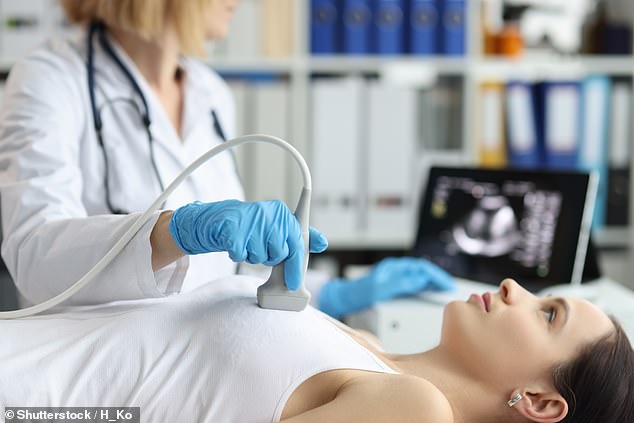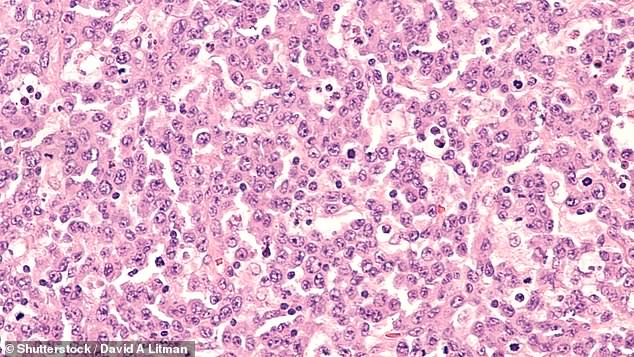Woman, 66, who developed rare cancer after breast implants wins five-figure damages after taking pharmaceutical company that made the implants to court
- Susan Axelby decided to have a double mastectomy due to concerns about her family’s health
- She was diagnosed with potentially fatal anaplastic large cell lymphoma
A woman who developed cancer from her breast implants has received a five-figure settlement from the manufacturer.
Susan Axelby, now 66, opted for a double mastectomy in 1999 due to fears about a high risk of breast cancer in her family.
Later that year, she received breast implants from Allergan Ltd., but experienced several problems with them, requiring repeated surgeries.
Mrs Axelby, from Sheffield, noticed significant swelling and pain around her right implant and was diagnosed with potentially fatal breast implant-associated anaplastic large cell lymphoma (BIA-ALCL) in 2018.
It is a form of non-Hodgkins lymphoma that forms in the scar tissue around implants and is thought to be linked to Allergan’s.
Susan Axelby won a five-figure sum in her claim against Allergen LTD after it emerged her breast implants were linked to the cancer she developed

She experienced significant swelling and pain around her right implant and was diagnosed with a potentially fatal breast implant-associated anaplastic large cell lymphoma in 2018 (stock image)
These were withdrawn from the global market in 2018, recalled in 2019 and are no longer used in the UK.
However, Sarah Moore, partner at Leigh Day Solicitors and representing Ms Axelby in her products liability claim against Allergan Ltd, said women who have been given these products are still at risk.
Yesterday it was announced that Ms Axelby’s claim had been settled and she would receive compensation from Allergan in November 2023, without admitting any liability.
The five-figure settlement is believed to be one of the first settlements against Allergan Ltd for BIA-ALCL in the UK.
Mrs Axelby said: ‘My diagnosis with BIA-ALCL was a nightmare. It has had a huge impact on my life.
“I wanted to take legal action against Allergan to ensure that there was some accountability.
Experts believe that some of these implants cause cancer.
“It is vital that other women are made aware of this and that Allergan Ltd. provides them with compensation so that they can take the necessary steps to address their situation.”
According to the UK government website, most BIA-ALCL disease is diagnosed early and cured by removal of the implants and surrounding scar tissue, without the need for additional cancer treatment.
However, in a small number of cases, further treatment, such as chemotherapy, immunotherapy or radiotherapy, may be necessary.

Mrs Axelby received breast implants after a double mastectomy in 1999, which she chose due to fears about the high risk of breast cancer in her family (stock image)

Allergen breast implants were removed from the global market in 2018, recalled in 2019 and are no longer used in the UK (stock image)
Officials say there is no screening test for the disease. Women who notice any unexpected changes in the size, shape or feel of their breasts should contact their doctor.
Sarah Moore, partner in Leigh Day’s international group claims practice, said: ‘I am pleased that we have been able to reach this settlement for Susan and I hope it brings her some closure to her difficult experience with Allergan implants.
Women with Allergan breast prostheses are still at risk of developing BIA-ALCL.
“This risk is reported to be low, but we are still concerned about the barriers women, particularly in the private sector, face in obtaining a diagnosis of BIA-ALCL.”
